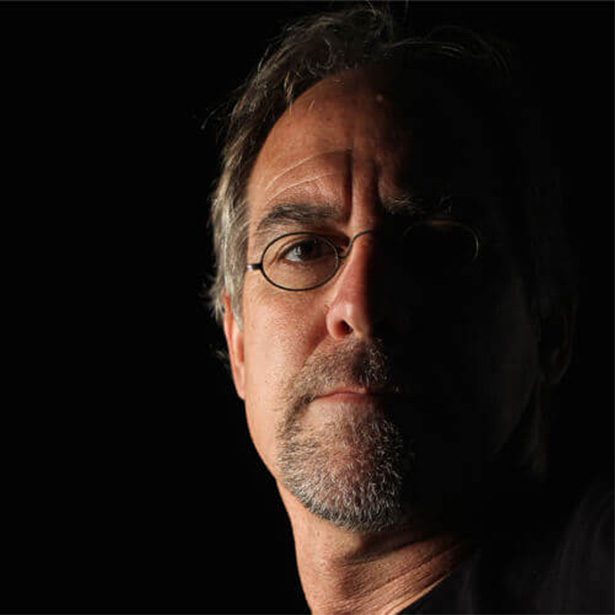Blog post
David Foster Wallace teaches us to value education — and tolerate traffic
Eight years ago David Foster Wallace gave a speech to the graduating class of Kenyon College about the value of a liberal arts education.

I love knowing people that have so much passion, they MAKE their dreams come true. On the heels of Lou’s successful work on whale entanglement with “In the Wake of Giants”, he started a kickstarter campaign to create the sequel, “Northern Wake”.
You’ve always wanted to be a filmmaker, what are some of the roadblocks you had to overcome to realize your dream?
Lou: The roadblocks, how do you do a natural history documentary meant to compete with fully crewed, budgeted films? You do it by making it personal, and by bringing every lesson you’ve learned in thirty years to bear on the final piece. It was brutal.
The footage of entangled whales was mostly captured on cameras the Hawaiian Island Humpback Whale National Marine Sanctuary was using for research. Helmet cams. Nobody bothered to clean the lens of water spots, they weren’t planning to do anything like this before. There were hundreds of hours of un-logged footage of whales that had gotten themselves tangled up in marine debris.
I had to go through several documented rescues, three to four cameras per effort, and find synced stories. Hoping for some semblance of coverage before a battery died or a card filled up and went unchanged. It was part luck, part magic, and then…more luck.
“In The Wake Of Giants” may not have come to fruition and definitely not been award-winning if you hadn’t put your own personal passion into it. What did you learn from this experience?
Lou: Yeah, passion is right. But passion about what? That’s the real question here. If I’d listened to the “whale-huggers” around me, I’d have made a film about whales. Lots of whales, breaching and frolicking and looking all majestic and beautiful. “Charismatic Megafauna” as they’re often categorized. And that’s where passion came in. The film is about people, good people, who sacrifice a lot and risk a lot to survive a quest–to accomplish a mission. It’s a story.
More to the point, it’s a hero’s journey. The week after we premiered, I showed it to you, Nancy. You were writing your book, Resonate, and gave me a copy of “The Writer’s Journey”. I couldn’t believe it, finally someone explained to me what I’d been doing. It’s funny how you can have passion about something you don’t totally get. Then somehow it’s explained to you and you become evangelistic about it. That’s what’s happened with me, these films, and the commitment to story.
There are a LOT of natural history films around that are these meandering, well-scored moving wallpapers. I want a story. That’s what I’ve become most passionate about, and what I’ve learned from doing this.
What kinds of work do you do to “pay the bills” so you can continue to produce short films?
Lou: I’ve done just about every job in production. So I’ll do what it takes these days. I prefer to produce, write and direct and take clients with me into realms they never dreamed possible for their product or service. I’m focusing a LOT on micro-documentaries, targeting three minute story packets for multiple screen sizes. My website, www.blatsnapper.com, has some examples.
There are film-school students who will work for Top Ramen and Cheese Whiz. So I’ve been producing more guerilla styled work but avoiding the day rate. Instead I’ll tell a client they can buy me for a discounted week. If they get tired of my ranting about story, they can tell me to cook them dinner, and I’ll happily do it.
You have a Kickstarter campaign for your new film. What will it be about?
Lou: The next film is the sequel to In The Wake Of Giants. It picks up where the first film left off, to answer the question, “How can we prevent this from happening in the first place?”
It’s through the unlikely collaboration of commercial fishermen, conservationists and scientists. Fisherman are prototyping new methods and working alongside the conservation community. Of course, we will also be shooting new rescue footage as it happens. I expect there might be more activity up there than in past years. As the polar caps recede, new areas for oil exploration are opening up. There will be 33 new exploratory vessels from Shell Oil alone this summer in Alaskan waters. More activity means more likely encounters between marine mammals and humans. This is the summer to be there. I need to raise $42,000 through kickstarter to match the outside grant funding I’m after for a small guerilla budget of $68,000. That’s a drop in the proverbial ocean.
There are two things that make kickstarter.com work for projects. Of course, the first is gaining backers for the project. But, a close second is sheer volume of tweets, retweets, and social networking. Nancy, if your readers could take a minute and repost the link here, I think the next thirty days or so could be a blast!